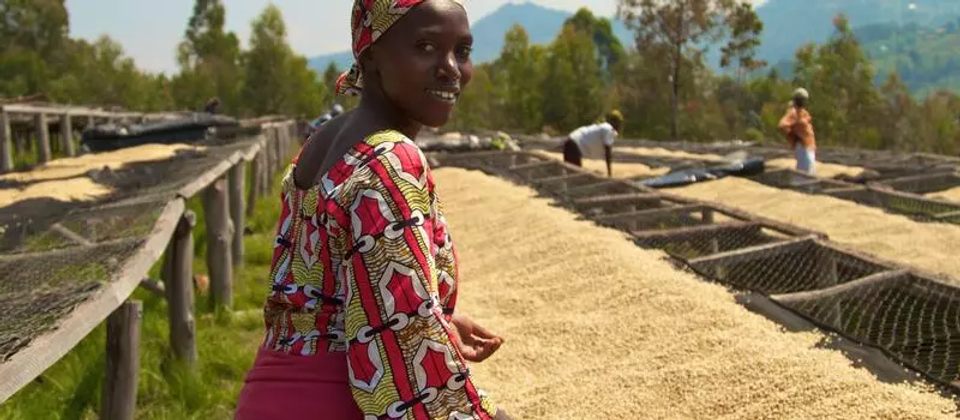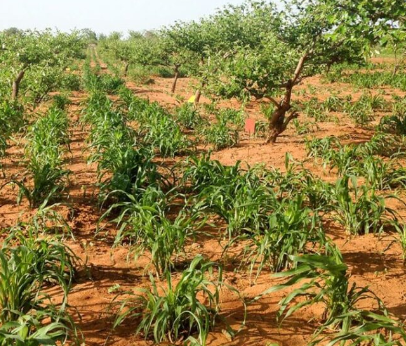
Photo: Root Capital
Small- and medium-sized enterprises (SMEs) form the backbone of the global economy, accounting for a big percentage of businesses across Africa. In the developing world, it is estimated that SMEs make up 90% of the private sector and provide an estimated 80% of jobs across the African continent, representing an important driver of economic growth. For these enterprises to grow, create more jobs and generate economic growth, they need access to capital.
Credit constraints are a serious challenge for SMEs
Given the importance of SMEs as a source of employment, barriers to accessing financing become barriers to poverty reduction and economic growth. “Without reliable sources of investment finance, SMEs are unable to make investments needed for growth, leading to stagnation”[i]. Reliable and affordable access to appropriate funding sources is critical for the survival and growth of potential SMEs. However, most SMEs in Africa face limited access to finance in the region’s bank-dominant system. The diversification of financing modalities beyond conventional bank lending can provide an alternative platform for the financing needs of SMEs and expand their financial access.
It is important to make connections among SMEs and between SMEs and capital providers. These connections will develop the necessary networks for future investment opportunities. There are several SMEs that only need a small amount of support before they are ready for commercial investment. The challenge most of these SMEs face is that they are too large to qualify for microfinance financing and too small to appeal to commercial financial institutions.
Organizations like USAID and development finance institutions (DFIs) have an important role to play in addressing the gap to catalyze financing for SMEs in sub-Saharan Africa. For its part, USAID is focusing on targeting SMEs and increasing/improving segmentation and matchmaking in the African Green Revolution Forum (AGRF) Agribusiness Deal Room. USAID is also focusing on strengthening the linkages between investment matchmaking programming and our USAID Missions in Africa.
The Agribusiness Deal Room
It is against this background that USAID, in line with its Private-Sector Engagement (PSE) Policy, has over the years continued to support the AGRF Summit — the world’s premier annual forum for African agribusiness and agriculture, bringing together stakeholders across the agricultural landscape to take policy and investment actions and share lessons that will transform African agriculture. USAID is one of three co-chairs (along with the Alliance for a Green Revolution in Africa (AGRA) and the International Fund for Agricultural Development (IFAD)) to the AGRF Summit’s Agribusiness Deal Room.
The Agribusiness Deal Room is a year-round matchmaking platform that convenes stakeholders from the entire ecosystem to facilitate partnerships and investments in African agriculture. It specifically supports governments and companies with access to finance and partnership opportunities. The Agribusiness Deal Room facilitates substantive, transaction-centered dialogue and connections amongst key stakeholders, including enterprises, farmers, governments, investors, financial institutions, non-governmental organization (NGOs) and development partners. The objective of the Agribusiness Deal Room within the AGRF Summit is to drive new business deals and commitments. The Agribusiness Deal Room provides SMEs in the agriculture and agribusiness sectors with the opportunity to access finance, mentorship and market entry solutions to support their growth objectives. It also creates opportunities for governments to present investment opportunities, promote investment incentives and engage with interested investors. It achieves these objectives through a combination of project preparation, pipeline development, project bankability, investment promotion and enabling policy environment. Agribusiness Deal Room participants also explore trade deals and partnership opportunities that enhance sourcing from African smallholder farmers.
USAID is most engaged in the component of the Agribusiness Deal Room related to building the capacity of investors and SMEs to provide and access appropriate financing. USAID is excited that the Agribusiness Deal Room has become an important forum where a range of SMEs and investors come together to explore business opportunities, identify solutions and unlock financial resources. USAID believes there is value in the Agribusiness Deal Room’s role as a platform to convene stakeholders and create synergy in the ecosystem to better leverage some of the great initiatives on the continent. (Shift from capital mobilization to ecosystem strength.)
Last year marked the largest convening so far of the Agribusiness Deal Room, continuing to position the platform as Africa’s premier deal-sourcing and deal-making space for agriculture stakeholders across the African continent. Attracting more than 4,500 delegates from 90 countries, over the four-day event, 127 agri-SMEs presented their investment pipeline of $345 million to a broad range of investors, and 15 governments presented investment opportunities valued at $5.2 billion across multiple value chains. Although fewer agri-SMEs were accepted into the Agribusiness Deal Room last year than the year before, a higher percentage of them were matched with investors. Sixty percent of investors were offering smaller ticket sizes that were more aligned with the size of investment sought by agri-SMEs. The Agribusiness Deal Room also hosted 16 expert panel dialogues highlighting successful models, innovations and opportunities to transform agriculture in Africa.
Along with the recent success/advances of the Agribusiness Deal Room, there is still room for improvement. More agri-SME segmentation/screening filters (e.g., ticket size, sector focus, stage of investment, investment type, etc.) in the Agribusiness Deal Room platform would make it easier for capital providers to target the most appropriate agri-SMEs. Although equity finance may come with its fair share of demands that may be challenging for agri-SMEs, these demands provide an opportunity for SMEs to grow. To encourage SMEs to seek equity financing, we need to increase discussions and knowledge sharing about equity as an alternative financing form for SMEs. Similarly, more screening criteria (e.g., debt versus equity; amount of debt/equity-seeking; etc.) to select when considering who to request a meeting with would reduce the number of meeting requests turned down. Technical assistance (TA) (e.g., through investment pitch preparations and improving internal control systems) can help agri-SMEs improve their capacity in sourcing investment. TA can also strengthen the governance and management structures of agri-SMEs, gaining the confidence of private finance, eventually attracting funding without the need for a blended approach. It is exciting to see that the Agribusiness Deal Room is now a year-round event, providing targeted TA ensuring that a number of agri-SMEs will be ready with pitches and be better prepared with the information that prospective investors are interested in for future Agribusiness Deal Room events. The full report is now available from AGRA.
This article was originally published by Agrilinks.

